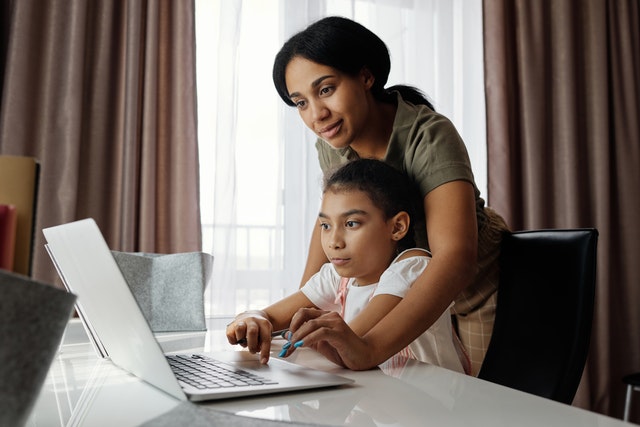Without any active or unresolved data breach, Quora is a safe knowledge-sharing website. As clearly stated in its privacy policy, Quora can only disclose your information with your consent to 3rd party service providers and affiliates or if requested by law or subpoenas to do so.
However, like every other popular social website, users are susceptible to receive unsolicited message threats, hate comments, and verbal abuse.
There have been reports from users complaining about receiving death threats on the platform, people stalking other users down to their family members, and many other depressing acts.
But Quora is undoubtedly a resourceful question and answer website where you can find answers from various field experts.
The question is..
How can one utilize this platform while keeping online safety and security in check?
This article will guide you on:
How to make the best use of Quora without compromising your safety on the internet,
the past and present standing of Quora in terms of user safety and security.
Without further ado, let’s get started.
A Brief History of Quora
Quora is a social question-and-answer website founded on June 25, 2009, with headquarters in Mountain View, California, United States.
The website was made available to the public on June 21, 2010, and has grown rapidly to over 600 million monthly users in 2021.
As of 2021, Quora has 600 million registered users with 10 million active monthly visitors.
Contrary to popular opinion, Quora is not owned by google.
It is a private company founded by Adam D’Angelo and Charlie Cheever on June 1, 2009.
Founders and investors own the company’s shares.
Is Quora Safe to Use?
Quora is safe to use as a question-and-answer site to obtain diverse views from different people across the globe.
It’s also the best knowledge-sharing platform to learn about research, science, technology, culture, history, customs, traditions, arts, languages, computers, health science, medical, psychological facts, life hacks, emotions, etc.
You can select the best answer by considering inbuilt metrics like the number of upvotes and also by checking the expertise of the author.
However, all answers on Quora are not completely reliable and should not be taken as a primary source of information.
It’s up to you to confirm the credibility of the information by looking up other information sources.
If you want to know if Quora is credible enough for academic purposes or to be quoted as a factual source, then see this article: Is Quora Reliable?
The extent of users’ safety on Quora
A public platform with over 400, 000 topics and 600 million monthly visitors discussing and sharing ideas is bound to experience internal clashes among users with different opinions or thought patterns, especially on critical topics.
It’s common to see such loggerheads and conflicts on any major public sharing platform amidst people of different religions, races, and ethnic groups, and political backgrounds.
However, the incessant verbal abuse among Quora users seems to be on the increase and has drawn mainstream media attention.

An ardent Quora user, Neil Anderson narrates his personal ordeal concerning threats to his life on the platform.
These are his exact words:
“I have been harassed and threatened. Not in a way that is real (I had a lengthy conversation with someone recently who took umbrage with my statement that I’d had death threats on Quora because they weren’t actionable), but there have been several targeted threats and a lot of harassment.
I get quite a lot of people telling me I’m going to burn to for eternity in hell for either not believing in their god, or for being gay, or both. Threatening someone who doesn’t believe in hell with eternity in hell seems rather stupid, but people genuinely take time out of their day to do this.
I think I’ve had three people who told me I should be killed—two from America and one from Pakistan.
….. Having seen several people trolled off of Quora, I rather feel it’s only a matter of time until I get hassled when I’m in the wrong mood and banned, or get tired of the constant trolls and inane questions and leave.
So as far as feeling safe goes, I don’t feel unsafe, but I get more hassle than I need.”
Another user Mark Jones narrates how another Quora user, whom he believes is mentally unstable, constantly chunks out many angry and hate-filled speeches on ex-Jehovah witnesses.
This user got agitated by one of Mark’s replies concerning the topic and spilled many violent words about ending Mark’s life.
He got banned on Quora, but he signed up again with another account.
Stalked and tracked Mark to both Instagram and Facebook, obtained pictures of Mark 5 years old daughter, and tells him on the gram how he hopes the little girl gets raped.
Although his multiple accounts have been blocked and reported by Mark, he still sends Mark a mail every day telling him how much he hates him.
It is quite unfortunate that mentally unstable people parade such platforms and can do all of this simply because they don’t see things from your own point of view.
But does this mean you should stay away from Quora?
Not at all; doing so will make you miss out on the good side of Quora.
From my perspective, the good part of Quora largely outweighs its shortcomings.
But I’ll add that the Quora moderation team should work better to curb anti-social activities on the platform.
Is Quora Secure?
Quora is secure when compared to other popular web-interchange sites.
However, no website or Internet transmission is completely secure as they are either prone to attack from malware or tainted with impersonators disguising as government official or staff of popular brands with intentions to defraud or scam anyone that falls prey to their lies.

image from giphy
Such dubious act is eminent among social networks like Facebook, Instagram, and Twitter.
You can play your part in keeping the online community secured by reporting such accounts whenever you come across them.
9 Actionable safety measures for Quora Users
- When creating your Quora account, choose a strong password and keep it private.
- If you are already a user and using a weak password, it’s advisable to make changes to it right away.
- Log out of your user account and closing your web browser when finished using the Quora Platform on a shared or unsecured device.
- Quora offers you the option to report and block any account that’s either offensive to your or threatening you in one way or the other.
- Don’t share too many personal details like family name, maiden name, house address, and mobile number on Quora. This will also keep you safe from identity theft.
- You can always control who can send messages to you.
- Ignore negative comments unless it is a healthy argument or constructive criticism about an opinion/topic.
- Don’t click on suspicious links provided by other Quora users, as they can redirect you to malware websites or hijack your internet browser.
- Don’t engage in any form of financial transaction with strangers.
These safety measures are useful not only for Quora but in any online sharing platform.
Karen Carmichael from Quora says:
“I don’t know the ins and outs of how they go about this, but everyone should remember that there are unscrupulous people here and everywhere just waiting to do you harm. Don’t make it easy for them”
How does Quora share User’s information?

Quora first gets your consent and shares information as set forth here:
- Service Providers: Quora may share your information with third-party service providers who use this information to perform services for us, such as payment processors, hosting providers, auditors, advisors, consultants, customer service and support providers.
- Affiliates: The information collected about you may be accessed by or shared with subsidiaries and affiliates of Quora, Inc.
- Business Transfers: Quora may disclose or transfer your information, including personal information, as part of any merger, sale, and transfer of our assets, acquisition or restructuring of all or part of our business, bankruptcy, or similar event.
- Web Browsers: Specifically designed to browse the internet.
- Protection of Rights: They may disclose information in response to claims asserted against Quora or, comply with legal process (e.g., subpoenas or warrants).
- Content and activity: Your content is available for other users of the Quora platform and may be viewed publicly.
- Anonymized and Aggregated Data: Quora may share aggregated or de-identified information with third parties for research, marketing, analytics, and other purposes, provided such information does not identify a particular individual.
- As Directed by You: They may also share data as otherwise directed by you (for example, to fulfill a transaction).
You can see the full version of Quora’s Privacy Policy, here.
From the statements above, there’s really nothing alarming in the way Quora obtain, use and share users’ data.
There’s little or no difference from what is obtainable online with similar social sharing networks.
However, you can control the types of notifications and communications Quora sends, limit the information shared within the Quora Platform about you, and otherwise amend certain privacy settings.
Is Quora safe for children?

Quora is strictly for teens ages 13 and older, which makes it inappropriate and unsafe for kids.
However, the platform can be accessible to children below 13 years if parental consent is made available.
In such case, the parent should guide the child on how to:
- follow only age-appropriate topics (to avoid them from viewing and engaging in adult-related content)
- and how to check other resources to verify other information especially primary information sources.
This is because upvotes on Quora don’t necessarily mean a piece of information is accurate.
QUORA 2018 DATA BREACH

On Friday, November 30th, 2018, Quora discovered that one of their systems was hacked and has led to the exposure of approximately 100 million user’s data to an unauthorized third party.
Quora stated that they then contacted law enforcement and hired a digital forensics and security consulting company to determine how this breach occurred and who may have conducted the attack.
Quora was swift to inform their users that their data was compromised, and they immediately logged out of the compromised accounts, prompting users to change their passwords.
The data that was exposed for the 100 million users includes:
- Account information (e.g., name, email address, encrypted password, data imported from linked networks when authorized by users)
- Public content and actions (e.g., questions, answers, comments, upvotes)
- Non-public content and actions (e.g., answer requests, downvotes, direct messages)
“We have already taken steps to ensure the situation is contained, and we are working to prevent this type of event from happening in the future,” stated Quora’s security update.
In addition to the safety measures provided above,
here are additional tips to protect you from such malicious attacks in the future.
- Create two-factor authentications on all your important accounts like Gmail and Facebook
- When you make an account on Quora or other such platforms, it’s suggested to sign-up directly with email and not sign-up with the help of another social network. This ensures that your information from other social networks doesn’t get compromised when Quora is hacked.
“Bleeping computer” strongly suggests information consumers should use unique passwords at every site visited to minimize the impact of a breach like this.
Conclusion
Quora is as safe as you make it to be.
The safety and security of any public platform can be perceived as a two-way channel:
- How well you play your part not only to avoid online scams but also for positive mental health.
- The platform’s role is to ensure user’s data are reasonably safe and devoid of malware.
Online scam is on the increase and everyone irrespective of age should be cautious of how you share and receive information on the internet.
Let’s face it, every top website has encountered massive attacks in the past.
I want to believe Quora now has systems in place to prevent such data leaks.
Nevertheless, nothing is completely safe on the internet and you should secure your information as much as you can.
Readers Request🏆
In our developers’ circle, there’s a growing need to build Question and Answer platform similar to Quora.
To achieve this, all you need is access to Quora’s source code and this is only possible if Quora is open-source.
What are the possibilities of achieving this?
If the chances are slim, are there any other open-source alternatives to Quora that can easily be replicated?
Find out from our recently published article here: Is Quora Open-source?
